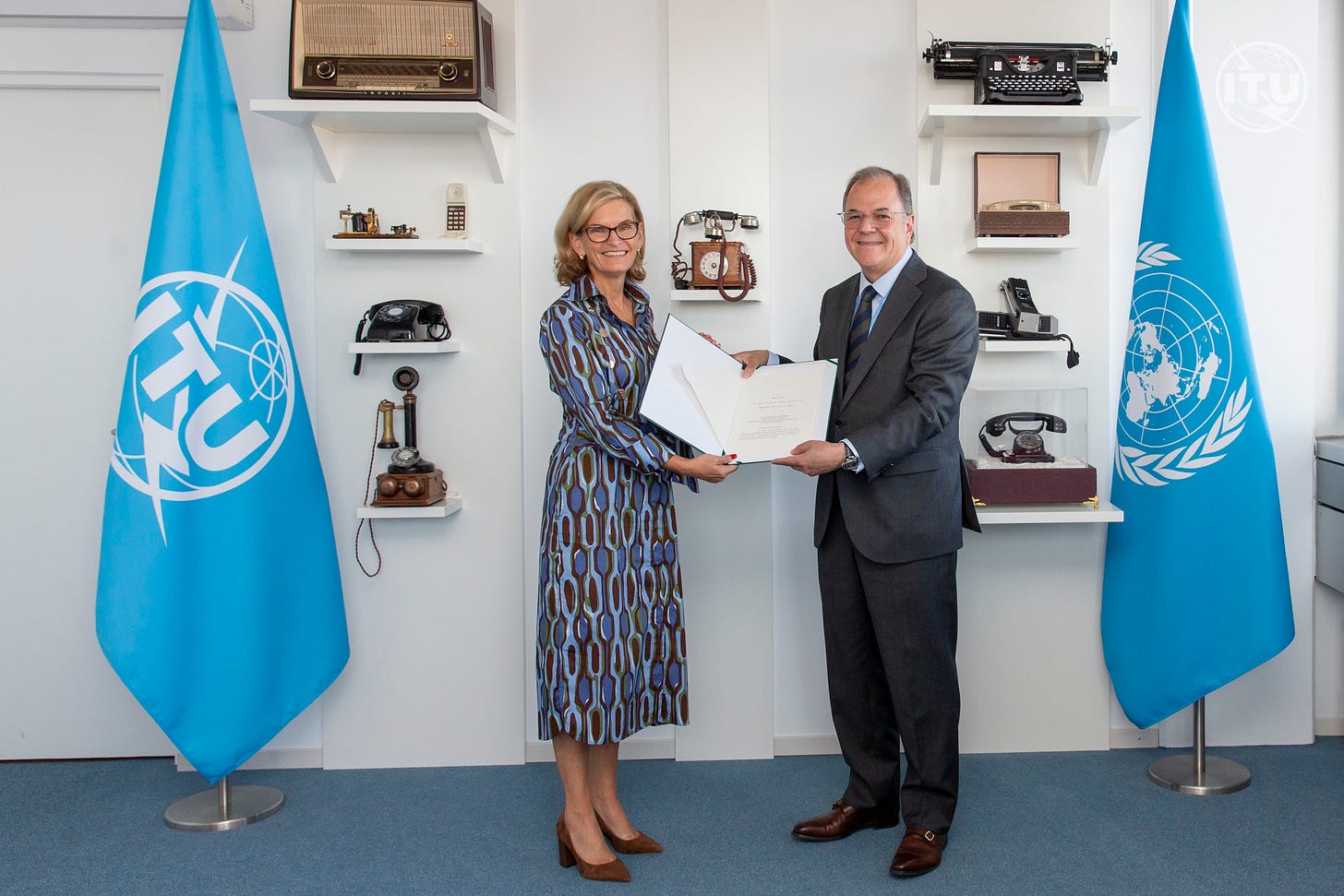WTO Global Trade Report: Cautiously Optimistic

The World Trade Organization, WTO, has released its latest Global Trade Outlook report. The report offers a cautiously optimistic outlook for global trade in 2024, after a decline in 2023.
The report predicts a 3.3% increase in global trade this year, due to factors like easing inflation and rising real incomes, particularly in developed economies. This will likely lead to a rise in demand for manufactured goods.
The report also warns of potential challenges including geopolitical tensions and policy uncertainty that could hinder trade growth. Food and energy prices could also rise again due to geopolitical events. The ongoing trade war between the US and China is also a concern, with bilateral trade slowing down in 2023.
On a more positive note, the trade in services sector grew by 9% in 2023, driven by recovering travel and digital services. This growth is expected to continue in 2024, thanks to major sporting events like the Olympics in Paris and the easing of visa restrictions by some countries.
The WTO has also released a new dataset on trade in services by mode of supply. This data offers insights on how services trade has changed over the years, including the impact of digitalization and the COVID-19 pandemic. You can find more information and a link to the full report below.
I had the chance to ask WTOs senior statistician, Ms. Barbara d’Andrea Adrian, on their projections for trade in services for 2024, and their data on 2023.
Trade in Services
Maya Plentz: My question is related to trade in services. You mentioned that it grew 9% in 2023 due to recovering travel and digital services. Can you break this down a little bit because when we talk about travel in the travel industry, we are talking also about digital services. And digital services comprises not only e-commerce, but also other sorts of transactions that happen electronically. You also expect further growth in 2024 due to sports events, you mean the Olympics in Paris, and lifting of visa restrictions. Can you also talk about that?
WTO Senior Statistician Barbara D’Andrea Adrian: “So when we are talking about travel here in our trade in services statistics, we reflect on the balance of payments methodology. I want to clarify this because you mentioned tourism and tourism is a much bigger coverage.
In what concerns travel growth rate of 38%, and widespread growth globally and across regions, it reflects travelers expenditure, when people stay in a foreign country, for example. It is growth for hotels, for restaurants, for entertainment, for sports events, or anything, any other services, but also for education and health.
These services are consumed in person.
Trade in services here means consumption abroad, technically, in our WTO terminology, the bulk of the service is consumed in presence by going to the country and attending concerts and so on.
Of course, an international traveler can also consume digitally delivered services while staying abroad. Like an audio tool through the internet and so on.
But the value of these services is negligible, from a statistical perspective, and very hard to measure. So those that are supplied at a distance, between the service supplier and the service consumers, among certain categories of other business services, like travel agencies, or other kinds of services that can be provided remotely, have a negligible impact.
We are not able to break down to this level of granularity to look at this very, very specific, business services.
As for the impact of easing of restrictions we have seen that there are a number of countries in the world that have taken the initiative to have some visa-free schemes.
Very recently, China introduced, for some selected countries, a visa-free entry and this is already starting to produce some good results, in the first two months of the year.
“The number of outbound Chinese travelers increased, almost reaching pre-pandemic levels, and also attracting foreign tourists to China.”
So this is only one example. But there are also other regions and countries that also introduced similar incentives. They're trying to to boost tourism, to boost international travel, so they're opening up and that's why the good prospect for the year together with all these major upcoming sporting events.”
Trade in Services:
Grew 9% in 2023 due to recovering travel and digital services.
Expected to grow further in 2024 due to sporting events and eased visa restrictions.
Exports of digitally delivered services reached record highs in 2023.
Additional Resources:
The report includes a new dataset on trade in services by mode of supply.
A newly launched Global Services Trade Data Hub provides access to comprehensive WTO services trade data.
For more information and link to the report:
Source: WTO
The WTO has released a new dataset on trade in services by mode of supply as in the WTO General Agreement on Trade in Services (GATS). It provides insights on how services trade has changed over the years, including the impact of digitalization and of the COVID-19 pandemic.
This dataset, as well as the latest estimates on digitally delivered services trade, and service trade in general, can be visualized and downloaded in the Global Services Trade Data Hub. The newly launched Global Services Trade Data Hub gives access to comprehensive WTO services trade data.
It provides visualizations and customizable features catering to the diverse needs of trade negotiators, analysts, researchers, and decision-makers, to derive insights.
The full report is available here.
International Telecommunication Union

ITU: The United Nations agency for standards in ICT.
World Summit on the Information Society
27 to 31 May (overlaps with ITU’s AI for Good)
WSIS+20 Forum High-Level Event
The list of high-level participants confirmed to date is available here.
The WSIS+20 Forum High-Level Event will mark twenty years of progress made in the implementation of the outcomes of the World Summit on the Information Society, which took place in two phases — Geneva in 2003 and Tunis in 2005.
Twenty years ago WSIS set the framework for global digital cooperation with a vision to build people-centric, inclusive, and development-oriented information and knowledge societies.
The WSIS+20 Forum High-Level Event will serve as a platform for multistakeholder discussions with the objective to take stock of the achievements and key trends, challenges and opportunities since the Geneva Plan of Action in 2003.
The Week in Generative AI
A roundup of US tech reporters on Generative AI, copyright infringement, and how AI is already replacing jobs.
Secrets, secrets, secrets.
Kevin Roose and Casey Newton on training data and copyright, NYTimes.
Kevin Roose and Casey Newton, of the Hard Fork podcast by The New York Times, A.I.'s Data Wall
Is A.I. Already Taking Jobs? Hard Fork podcast, Kevin Roose and Casey Newton
They also talk about Sora, the OpenAI tool for the generation of films and videos, and interview multidisciplinary artist and filmmaker Paul Trillo of a “select group of testers granted early access to Sora”.
How Tech Giants Cut Corners to Harvest Data for A.I., by a New York Times team of technology reporters: Cade Metz, Cecilia Kang, Sheera Frenkel, Stuart A. Thompson and Nico Grant. Reporting from San Francisco, Washington and New York.
For Data-Guzzling A.I. Companies, the Internet Is Too Small, by the Wall Street Journal
Lawmakers unveil sprawling plan to expand online privacy protection, WaPo
US Copyright Law Office Wakes Up to Fight Generative A.I. Copyright Infringements, by Cecilia Kang, NYTimes.
Kara Swisher and Scott Galloway discuss how OpenAI prepares to fight numerous legal battles on copyright infringement.
The Largest Data Heist in History?
The Information Jessica Lessin and her squad of the More or Less Podcast, Brit Morin, Dave Morin, of Offline Ventures, and Sam Lessin, of Slow Ventures, on Big Tech intellectual property theft, how to sort IP licensing, information asymmetries where the AI companies seem to hold all the cards (data training and algorithms’ black box), and how filmmakers, actors, news producers, publishers, authors and writers are being denied a fair share of earnings and compensation for use of their work.
Subscribe to their weekly podcast here.
Meanwhile in Europe…
We must stop the smartphone social experiment on our kids, reports the Financial Times, Camila Cavendish.










